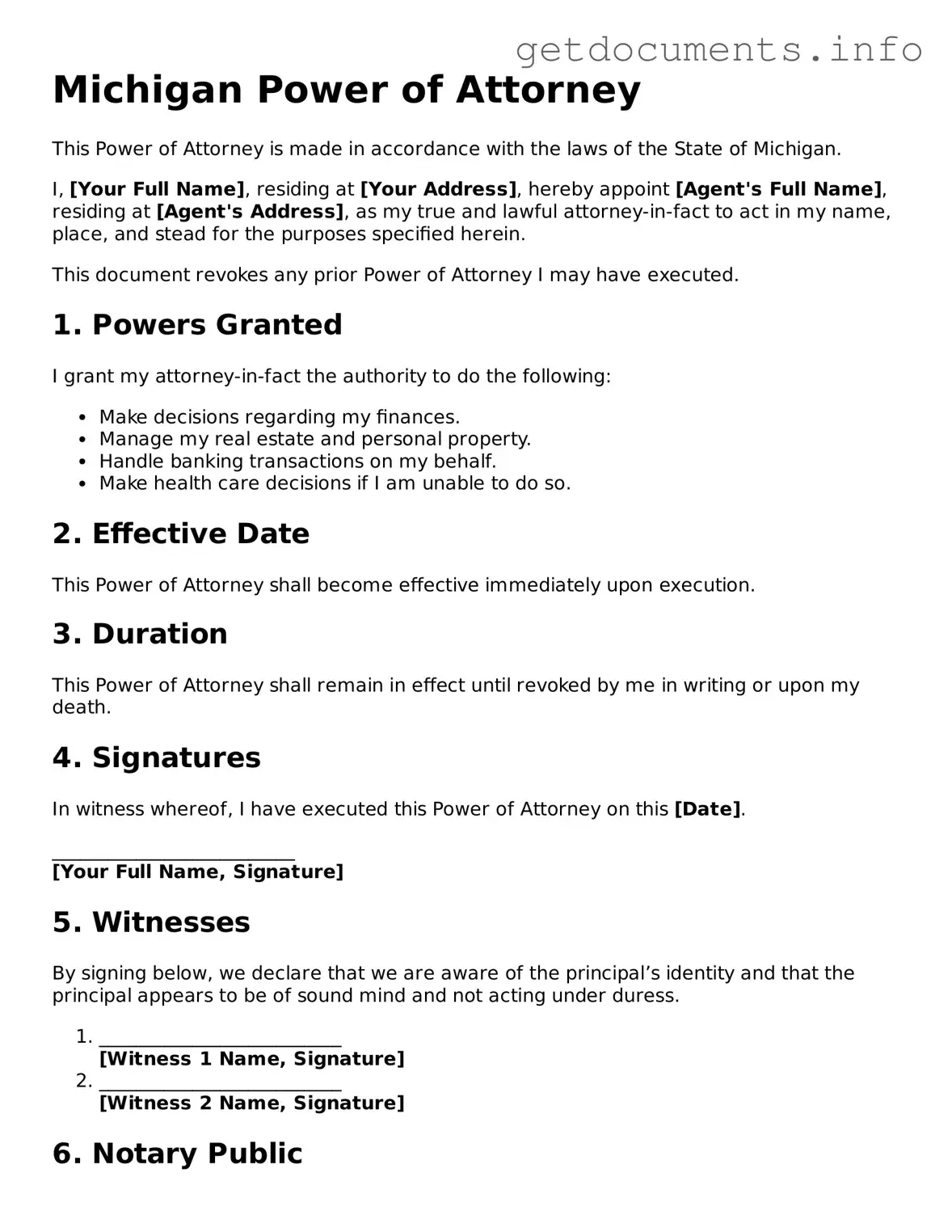Free Power of Attorney Template for Michigan
The Michigan Power of Attorney form is a legal document that allows one person to grant another person the authority to make decisions on their behalf. This form is essential for managing financial and health-related matters when someone is unable to do so themselves. If you're considering filling out this form, click the button below to get started.
Access Power of Attorney Editor

Free Power of Attorney Template for Michigan
Access Power of Attorney Editor
Got places to be? Complete the form fast
Fill out Power of Attorney online and avoid printing or scanning.
Access Power of Attorney Editor
or
⇩ PDF File
